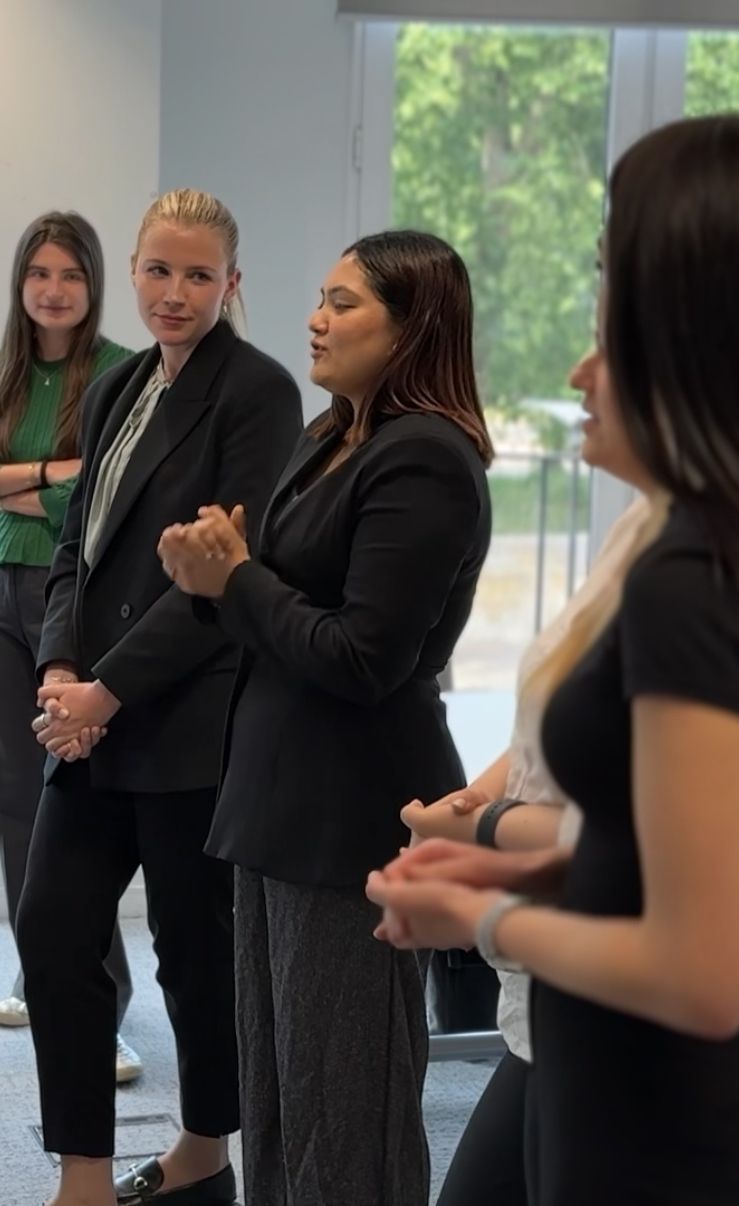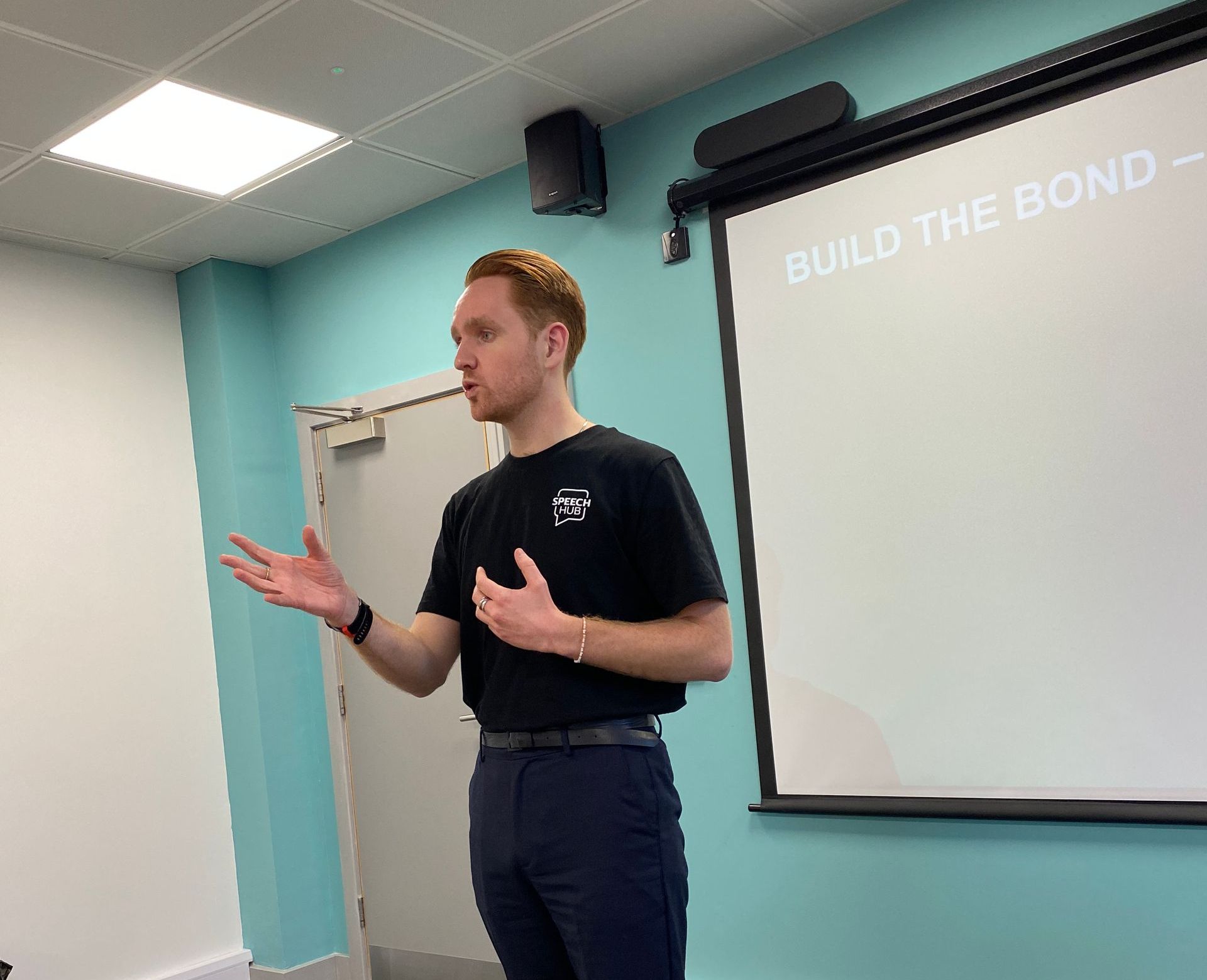Learning a language: The sure way to self improvement!
Tom Plenderleith • May 13, 2025
How Learning a Language Has Helped My Communication and Coaching Skills
‘Grathias.’
‘Tom, why are you adding a lisp to your words?’
‘Isn’t that how you’re supposed to do it?’
‘No!’
This was the moment I realised I wanted - or even needed - to learn a language. I’ve always dreamt of moving abroad, and more recently, that dream has developed into moving to Spain. Both of my older cousins live there, and when I was visiting in 2022 for New Year’s Eve, I felt ashamed of my lack of language skills - and inspired by theirs!
Okay, it wasn’t just the shame of adding a lisp to cerveza, or sin, or queso - I also wanted to be able to explain my dietary requirements to the waiter. Sin carne, sin queso, sin pescado, sin divertido. That’s because I’m a vegan! It’s quite stressful explaining this in a country where they consume a lot of fish. Once, I asked for the salad without chicken, and they brought it out with tuna on it.
‘I said without meat,’ I said pleadingly.
‘Yes, sir, but this is tuna.’
Fair point, I suppose – but it was time to rectify this issue!
As a coach myself, I never really vibed with the idea of being coached.
I liked being the teacher, I liked being the ‘expert’ in the subject – and I loved helping people.
I logged onto Preply, which is a coaching site for people like me who want to learn. I was keen! I found Ana - a wonderful lady from Colombia who now lives in Norway with her husband and their beautiful baby. I’m not sure she knew what she was getting herself into, to be honest - I’ll chew your ear off in English, but in Spanish? Eeesh.
Lesson 1: Oh sh*t - I really don’t know anything.
Lesson 2: I still know nothing.
Lesson 3: How do you say hello again?
Skip ahead, skip ahead - needless to say, I found every lesson incredibly difficult, and I found it embarrassing. Why on earth would I be embarrassed when I’m the pupil? I’m so used to being the coach, to having the answers. I almost wanted to say sorry after every mistake I made.
Then the penny dropped… this is how my students feel.
I spent a lot of my time saying, ‘Please don’t apologise, it’s fine!’ or ‘This is a new skill - of course it’ll take some time.’
So why couldn’t I practise what I preach?
Because no one likes being bad at something, right?
Lesson 20: Oh - did we just have a very basic conversation in Spanish?!
This changed my perception of learning. I think it’s because I never liked learning. I love teaching, but I never really took to learning. This was the first skill I’d learned outside of an educational institution - and I was loving it.
It also changed my perception of coaching.
Ana has a style - especially with newbies (like me): patient, smiley, friendly - the list could go on. But it’s that last one for me. She wasn’t really my coach; she was my friend who frequently corrected my Spanish.
We’re always more comfortable making mistakes around our friends than we are with strangers - because friends understand, or at least we think they do. I don’t know if this was conscious, Ana - but thank you.
So! This is great. I know a bit of Spanish, and I’m a better coach for my clients due to the shift in my perspective on learning. What next?
Ana is retiring to become a breathwork coach. Selfish!
AND
I need to go to Spain in June for my cousin’s 30th birthday. This means I have to speak Spanish… in Spain? Oh dear, dear me. Learning the language and having the confidence to speak it with a coach is one thing - being stubborn enough to speak it in the actual country is another.
Anyway, the less said about that, the better. I was sh*t scared and hated every interaction I had.
‘¿Tienes mayonesa vegana?’
‘Yeah, we do’ - they would always reply in English!
‘Thanks.’ Not even a gracias from me - or a grathiathhhhhhh.
I spent a lot of time telling my clients to use the tools I’d taught them. They needed to put them into practice. But that’s much easier said than done - as I’d recently discovered.
I needed to step this up a notch. I had to find a way to take what I’d learned and actually use it.
Enter Nora. Nora is my current Spanish teacher - and a very good friend. She’s taught me that aligning passions with learning is the way forward. Why not learn all about The Lord of the Rings in Spanish? Why not discuss anime, movies, vegan food - all the things I love - in Spanish?
Nora is from Venezuela and lives in Argentina. Her English is immaculate, and her fascination with my pronunciation of the word ball will always make me laugh. She sets goals for me:
The next time you go to Spain, try to tick off these three things.
The time after that - go a little further.
You are to only speak Spanish - even if it’s rubbish.
And now I do!
Now, we only speak in Spanish in our lessons. Skip forward three years, and I can sort of speak Spanish - I can sort of hold a conversation. This is all down to the coaching style I’ve received.
It’s taught me that learning as an adult is hard.
It’s taught me that putting new skills into action is scary.
It’s taught me that a good teacher is like gold dust – and luckily, I’ve had two.
It’s reminded me that communicating with new people is unfamiliar - and can be frightening. I find it easy in English, but Spanish has reminded me to empathise with my clients.
Don’t give up - the first few months are horrid, embarrassing, slow, and feel pointless. Push on!

You’re good at your job. Like, properly good. You know your stuff, you fix problems, and if there were a points system for being competent, you’d be smashing the leaderboard. So why - WHY - does it feel like you’re not being taken seriously? You explain things clearly. You don’t waffle. You’re not a show-off. You get results. And yet… Someone louder - and let’s be honest, not necessarily smarter - ends up getting the credit, the confidence vote, or the promotion. Been there? Here’s the kicker: Your work isn’t meant to speak for itself. That’s your job. And it’s not about turning into a LinkedIn influencer or speaking in TED Talk soundbites. It’s about understanding that in your world - the grown-up, high-stakes, technical one - being brilliant isn’t enough if no one realises it. What people hear vs. what you say. Here’s the plot twist no one warns you about: If you hedge every answer with “I might be wrong, but…” If your voice goes up at the end like you’re asking permission to exist If your body says “please don’t look at me” while your brain’s solving the problem… Then people stop hearing your expertise. They hear uncertainty. Even if you’re right. Especially if you’re right. Okay, so what now? No, you don’t need to “fake confidence.” You don’t need to pretend you’re something you’re not. But you do need to give your brilliant brain the packaging it deserves. That means learning how to say what you know in a way that lands. Because people don’t just listen to facts. They respond to delivery. To tone. To conviction. To the subtle signals that say: “I know what I’m talking about, and you can trust me.” The good news? This isn’t a personality makeover. It’s a skillset. And we can build it. If this sounds like something you’ve felt (or shouted about on the way home from work), you’re not alone - and you’re not broken. You're just under-heard. Let’s fix that!



